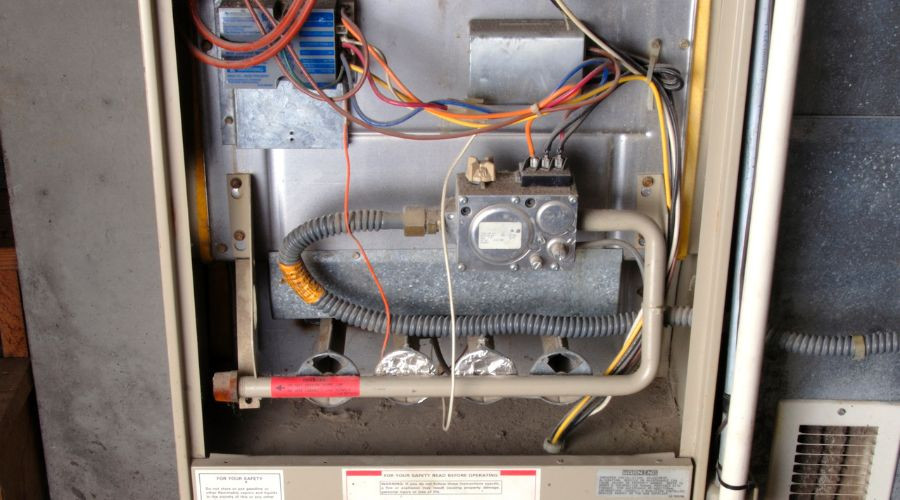Sparks, NV, Heating Contractors Reveal Common Signs of Malfunctioning Heaters
Sparks, United States - January 13, 2025 / Lincoln Heating & Air /
Heating Hazards and How Homeowners Can Identify Them
When the weather gets chilly outside, Sparks households rely on a fully functioning heater. But what happens if the system malfunctions, putting families at risk of dangerous heater problems? To avoid these problems, homeowners need to recognize the signs of a problem with their heater that can lead to major threats to the household.
In this post, Sparks heating contractors offer tips on how to identify dangerous heater problems, including carbon monoxide leaks, the presence of mold, and overheating heaters.
Carbon Monoxide Leak
 Carbon monoxide (CO) poisoning is a serious and potentially fatal hazard linked to malfunctioning furnaces or heaters. This odorless, colorless gas is produced by incomplete combustion in gas-powered heating systems. If the system is damaged or lacks proper ventilation, CO can build up in the home, posing a significant risk to occupants.
Carbon monoxide (CO) poisoning is a serious and potentially fatal hazard linked to malfunctioning furnaces or heaters. This odorless, colorless gas is produced by incomplete combustion in gas-powered heating systems. If the system is damaged or lacks proper ventilation, CO can build up in the home, posing a significant risk to occupants.
Signs of a Carbon Monoxide Leak
Households need to watch for key symptoms of carbon monoxide poisoning. The faster they spot these signs, the quicker they can call for emergency services:
- Flu-like symptoms, including headaches, nausea, and dizziness.
- Shortness of breath or feeling unusually fatigued while indoors.
- Yellow or flickering flames in the burner instead of the normal steady blue flame.
- Soot or black residue around the heater or venting system.
Property owners should install carbon monoxide detectors on every level of their homes to protect their households and regularly test them to ensure they function properly. If a CO detector sounds an alarm, occupants should evacuate the house immediately.
Once the household is safe, they should call for emergency HVAC services to address the issue and seek medical attention if anyone shows symptoms of CO exposure. The faster families act, the safer they will be.
Mold Growth
 Mold growth is another hidden risk associated with a faulty heating system. Moisture buildup, often caused by a clogged or leaking condensate drain, creates the perfect environment for mold to thrive. Once established, mold spores can spread through the home’s ductwork, polluting the air the family breathes.
Mold growth is another hidden risk associated with a faulty heating system. Moisture buildup, often caused by a clogged or leaking condensate drain, creates the perfect environment for mold to thrive. Once established, mold spores can spread through the home’s ductwork, polluting the air the family breathes.
Signs of Mold in the Heating System
There are numerous signs of mold growth that homeowners should look for throughout their homes. Some key symptoms are:
- A persistent musty or earthy odor in the home.
- Unexplained allergy-like symptoms, such as coughing, sneezing, or skin irritation.
- Visible mold near vents or within the HVAC system itself.
To prevent mold growth, homeowners must ensure their HVAC system drains properly and regularly replace air filters. Scheduling routine HVAC maintenance with a professional is essential to identifying and addressing moisture issues before they turn into mold problems. A proactive approach helps keep the system—and the home’s indoor air—clean and healthy.
Overheating Furnaces and Heaters
An overheating furnace or heater is not only inefficient but also poses significant safety risks. It can release excess carbon monoxide, increase the risk of a fire, and cause internal damage to the system, potentially resulting in costly repairs or even replacements.
To avoid these threats, homeowners must watch for key symptoms of an overheating heater, including:
- A noticeable burning smell coming from the vents.
- Strange noises, such as loud humming, clanking, or buzzing.
- The system frequently shuts down or cycles irregularly.
How to Prevent Furnace Overheating
Fortunately, there are steps homeowners can take to avoid an overheating furnace. Some of these tasks are:
- Replace the air filter or furnace filter regularly to ensure proper airflow and prevent the system from overworking.
- Keep vents and registers clear to allow unrestricted air circulation.
- Schedule regular HVAC maintenance with a professional to catch and address potential issues before they lead to overheating.
Taking these preventative measures can protect the heating system from damage and keep homes safe and comfortable.
About Lincoln Heating & Air Conditioning
Make every penny count with the experts at Lincoln Heating & Air Conditioning. As a family-owned and operated company with over 30 years of experience, Lincoln Heating & Air Conditioning provides quality heating and cooling services to Northern Nevada. Call them today for heating repairs, maintenance, or replacements in Sparks, NV.

Contact Information:
Lincoln Heating & Air
1520 Glendale Ave
Sparks, NV 89431
United States
Kenneth Quirk
(775) 359-1985
https://lincolnheating.com/
Original Source: https://lincolnheating.com/2025/01/10/warning-signs-of-dangerous-heater-issues/
